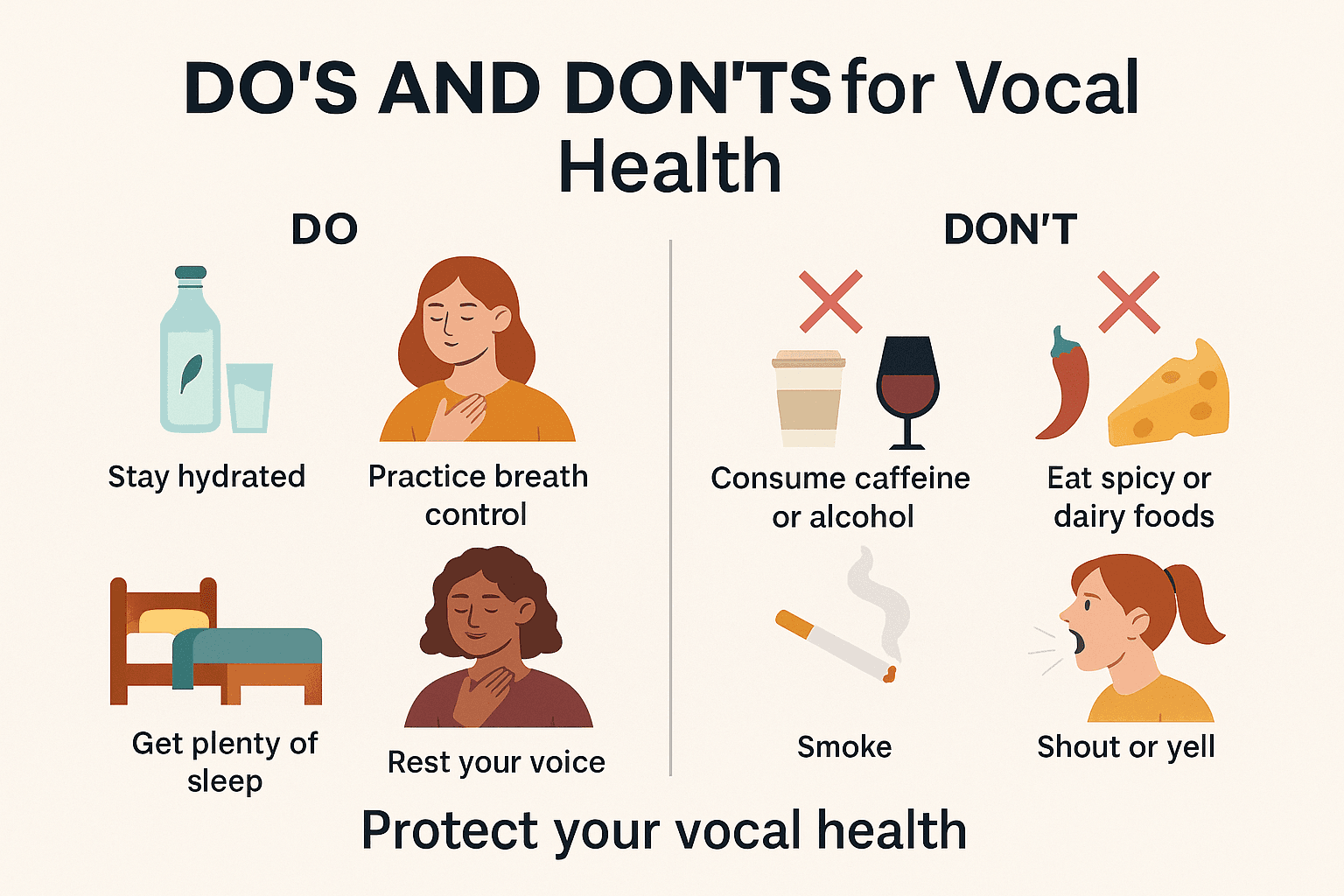
Art Gharana — 3 Mins read
Top 10 Easy Songs for Beginners
Vocal

Learning to sing is not just about having a good voice—it's about developing your technical skill, practicing the right vocal techniques, and connecting emotionally with every note. Whether you're just beginning your music journey or want to refine your basics, this guide will help you improve singing skills step by step.

Before you dive into complex melodies, it's crucial to build a solid foundation.
Your vocal range determines the notes you can comfortably sing. Identifying whether you're a soprano, alto, tenor, or bass helps you choose songs that highlight your strengths and avoid straining your voice.
Good singing begins with breath control. Practice diaphragmatic breathing to sustain notes longer and sing with more power and ease.
Good posture supports breath flow and vocal resonance. Stand upright with shoulders relaxed and feet shoulder-width apart for optimal voice projection.
Warming up is essential to prevent vocal strain and build vocal flexibility. Check out our blog on Top 10 Vocal Warm-Up Exercises for Beginners to get started with the right routine.

Consistency is key to success in any field, and consistent practice sharpens every aspect of your voice.
Whether it’s hitting high notes or improving pitch accuracy, break down your goals into manageable daily exercises.
Strengthen your voice with scale runs, lip trills, and vowel shaping to enhance articulation, tone clarity, and range.
These classical exercises boost your sense of pitch and improve control over melody transitions—critical in professional voice training.
Skipping warm-ups or practicing with poor posture can hold you back. Focus on both vocal techniques and mindfulness.

Your ability to stay on pitch depends on how well you can hear and respond to musical notes.
Use instruments or tuning apps to align your voice with accurate pitches and sharpen your technical skill.
These apps help you identify the distance between notes, a foundational skill for learning harmony and improvisation.
Start simple—hum a note and match it. Over time, your pitch accuracy will improve.
This interactive method strengthens your listening and response skills, critical for ensemble singing.

To keep your voice strong and stable, treat it like the instrument it is.
Water lubricates your vocal folds. Avoid yelling or excessive throat clearing, both of which can harm your voice.
Limit caffeine, dairy, and spicy foods, which can affect your vocal tone and vocal resonance.
Recovery is vital. Vocal fatigue can lead to long-term damage if not addressed early.
If your voice cracks, becomes hoarse, or loses power, rest immediately and review your singing habits.

Mastering breathwork can take your performance from average to impressive.
Using your diaphragm gives you better stamina, control, and vocal consistency—core elements of professional training.
Blowing through a straw or sustained hissing sounds are great for improving breath length and flow.
A steady airflow leads to smoother phrasing and dynamic control in your singing.
Practice pausing, inhaling, and exhaling where needed to maintain rhythm and vocal power throughout a performance.

Incorporating classical elements strengthens your technique and confidence. Here's a perfect example:
Featuring Akshat Pratap Singh, a renowned Hindustani classical vocalist, who dives deep into Raag Jog, Malkauns, and Yaman. He also shares expert insights on mastering Swaras, navigating the Saptak, and building confidence through structured classical training. It's a must-watch for anyone serious about gaining authenticity in their voice and refining core vocal techniques.

Singing is both a technical and performative art. Confidence is built, not born.
Observe your facial expressions, body movements, and posture as you sing.
Listen critically to your recordings to identify areas of improvement in tone, pitch, and articulation.
Collaborative environments, like those at Artium Academy, help you gain confidence while learning from peers.
Use breathing techniques, visualization, and regular exposure to performance settings to reduce anxiety.

A mentor can accelerate your learning and help you break bad habits early.
Nothing beats personalized feedback. Enroll in Art Gharana's expert-led vocal classes tailored for beginners and aspiring professionals.
You’ll learn how to enhance your vocal resonance, work on dynamics, and connect better with your audience.
Being part of a community keeps you inspired and accountable in your music journey.
Take the first step by claiming a free trial lesson and experience structured learning with expert mentors.
A good singer doesn’t just sing—they connect.
Your performance becomes more authentic when you sing lyrics you truly relate to.
Whether it’s joy, pain, or hope, tap into the emotion of the piece to create a lasting impression.
Master loud and soft transitions to control the emotional highs and lows in a song.
Modulate tone and tempo to support the story you're telling. This is where storytelling meets technique.
Singing is a long-term craft. Patience and passion go a long way.
Hitting a new note or singing your first song in tune is worth celebrating.
Create a playlist of your recordings to hear your growth month over month.
Every professional singer once struggled too. Keep going with consistent practice.
Explore success stories from singers who started from scratch and reached the stage with perseverance and the right professional training.
At Art Gharana, we believe that everyone has a voice worth sharing. Whether you're working on your pitch accuracy, breath control, or building confidence, our customized vocal courses are designed to guide you every step of the way. Sign up for a free trial lesson and take the first step toward discovering the singer in you.